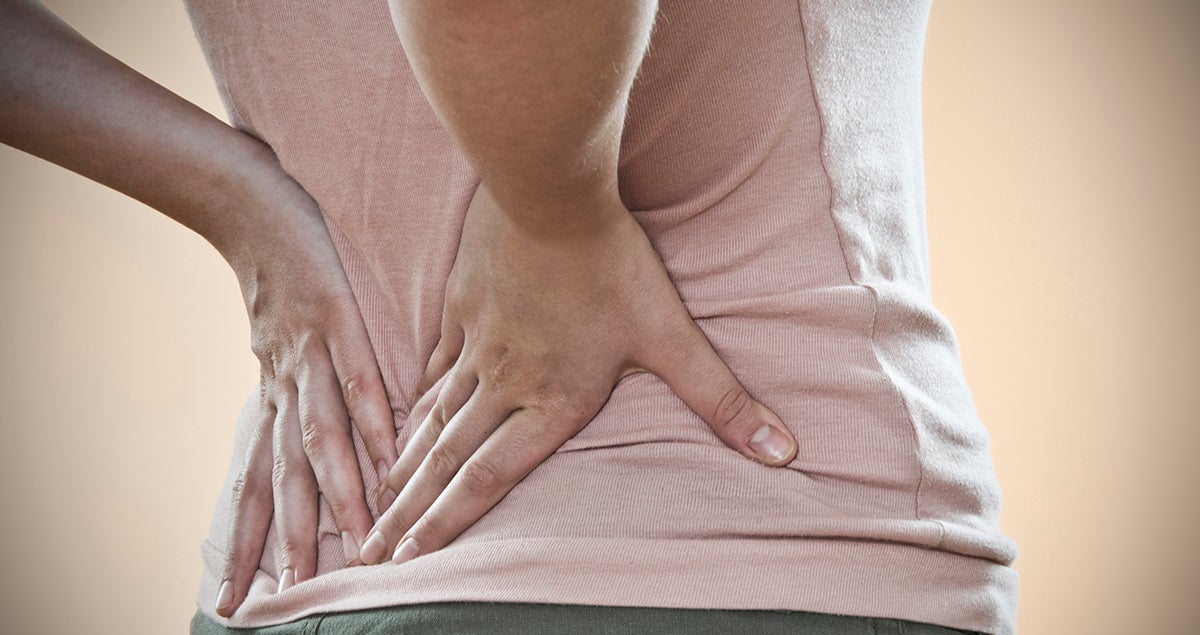Back pain is one of the most common conditions in America. Experts estimate that up to 80 percent of adults will experience back pain at some point in their lives. You may suffer from back pain as a result of an injury at home or while playing sports, or you could even experience it from simply bending over and picking up a pencil from the floor. You may also get back pain as a result of aging. Many people choose to treat their back pain at home with pain relievers, heat and ice, or stretching. But when is it time to see a specialist?
See a Doctor About These Back Symptoms
If you experience any of the symptoms below, it could be a sign of a more serious condition that requires your doctor's diagnosis.
- Persistent back pain. Back pain often goes away in a few days on its own or with treatment at home. If your symptoms don’t go away after a week or two, you should see a doctor.
- Extreme pain. The severity of back pain can vary greatly, but if you experience sharp, shock-like pain that radiates from your lower back or neck, don’t hesitate to talk to a doctor.
- Sudden back pain. Back pain often settles in gradually. But if you experience pain that appears very suddenly, go to a doctor.
- Pain radiating down your legs. Sometimes pain can start in the area of your buttocks and radiate down your legs. It may even lead to pain in the feet.
- Nerve-related issues. If your pain is accompanied by weakness in your arms or legs, tingling, difficulty walking, or other nerve-related issues, you should see a doctor soon.
- Bladder or bowel issues. If you are experiencing pain along with loss of bowel or bladder control, this is possibly a serious situation and you should see a doctor immediately. Don’t wait to see if it goes away.
Spine Conditions We Treat
Finding the source of your back pain can be a challenging process. Only a doctor can diagnose and treat your symptoms. Holy Cross Health’s team of spinal experts and surgeons provides patients with the latest treatment options for a wide range of spine conditions. There are many different conditions that can cause back pain, but here are just a few of the most common conditions that our spine specialists treat.
- Spinal stenosis is a degenerative condition that typically occurs in people over 60 years old. It is caused by arthritis and the normal wear-and-tear effects of aging.
- Herniated discs (also known as slipped or ruptured discs) occur when the small discs that cushion the bones in the spine are pushed out of place. They are more common in the lower back but can also occur in the neck.
- Compression fractures commonly occur in people who have osteoporosis, especially post-menopausal women. They occur when the bony blocks of the spine become weak and break.
- Spinal tumors develop on the spinal cord or spinal column. They can be benign (non-cancerous) or malignant (cancerous).
- Spinal cord injuries can occur from a number of issues that impact the back and spine, including traumatic events like automobile accidents.
Learn More About Back Pain
You can also download our free guide to back pain and spine problems, which can help you identify your symptoms and determine what to do next. Download the guide here. If you’re ready to see a doctor about your back pain, you can search for an orthopedic spine surgeon, neurosurgeon or pain medicine specialist on the Holy Cross Health Spine Team.
Helpful Links
- Read Patient Stories
- Download the Decision-Making Guide
- Learn About Our Spine Services
- Find a Spine Specialist
- Sign Up for a Class
- Watch videos of spine specialists address common back pain and spine questions
Holy Cross Health presents the information in this blog as a resource for our community. It is not intended to replace professional medical advice or to endorse any particular entity or service. Personal health problems should be brought to the attention of the appropriate health professionals.

